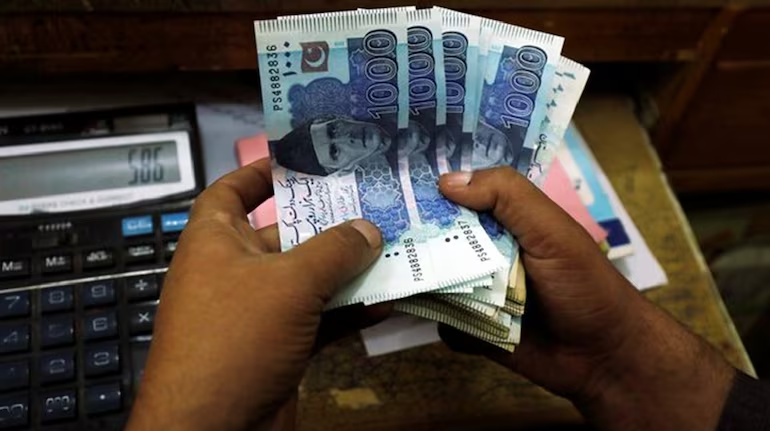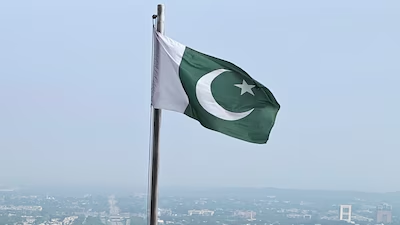IMF and Pakistan: Constructive Talks on Economic Reforms Amid Challenges
The International Monetary Fund (IMF) recently concluded a series of discussions with Pakistan’s authorities, focusing on economic policy and reform initiatives aimed at addressing the country’s vulnerabilities.
The unscheduled staff visit, which took place from November 12 to November 15, was not part of the formal review process for the Extended Fund Facility (EFF) approved earlier this year but provided an opportunity for both sides to address pressing concerns.
This meeting came just six weeks after the IMF board approved a $7 billion bailout under the EFF, designed to stabilize Pakistan’s struggling economy. While the first official review of the program is scheduled for the first quarter of 2025, the IMF’s early engagement underscores the urgency of Pakistan’s economic challenges.
Nathan Porter, the IMF’s Pakistan mission chief, described the discussions as “constructive” and emphasized the importance of the country’s commitment to implementing economic reforms under the EFF. According to Porter, these efforts are vital for reducing vulnerabilities and laying the groundwork for sustainable and robust economic growth.
Though the IMF statement did not explicitly outline the specific areas of concern, sources within Pakistan’s finance ministry shed light on several critical lapses that may have prompted this intervention:
READ ALSO: Britain Should Prioritize Trade Alignment with the U.S. Over the EU -Trump Aide

- Revenue Shortfall: Pakistan experienced a significant revenue collection gap of nearly 190 billion rupees ($685 million) in the first quarter of the current fiscal year, raising concerns about fiscal stability.
- External Financing Gap: A $2.5 billion external financing gap during the same period further underscored the country’s economic fragility.
- Privatization Setbacks: Efforts to privatize Pakistan International Airlines (PIA), a loss-making state-owned enterprise, failed, marking a major obstacle in fulfilling IMF requirements to address the inefficiencies of such entities.
- Energy Sector Losses: The power and gas sectors remain significant drains on the economy, with losses amounting to billions of dollars. The IMF highlighted the necessity of structural energy reforms to restore viability in these sectors.
During the discussions, both sides concurred on several critical measures to tackle Pakistan’s economic challenges:
- Fiscal and Monetary Prudence: Pakistan must maintain disciplined fiscal and monetary policies to stabilize the economy and ensure consistent growth.
- Revenue Mobilization: Expanding the tax base and tapping into untapped revenue sources are essential to meeting fiscal targets.
- Energy Sector Reforms: Structural reforms in the energy sector are deemed crucial to addressing inefficiencies and reducing losses.
Pakistan’s economic challenges are not new. The country has experienced repeated cycles of economic instability, requiring 23 IMF bailouts since 1958. Despite numerous reform efforts, the economy has continued to grapple with structural inefficiencies, weak revenue generation, and reliance on external financing.
READ ALSO: Russia Maintains Gas Flows via Ukraine Amid Expectations of Cuts to Austria
The recent EFF program aims to address some of these longstanding issues by imposing stricter fiscal discipline and encouraging structural reforms in key sectors, including energy and state-owned enterprises.

The IMF’s visit underscores the high stakes for Pakistan as it navigates a challenging economic environment. While the discussions were described as constructive, the road ahead will demand decisive action from the government to implement critical reforms, mobilize revenue, and ensure adherence to the conditions set under the EFF.
For Pakistan, the challenge lies in overcoming entrenched inefficiencies and ensuring that reform efforts translate into tangible improvements in economic stability and growth. Success in these areas will not only restore confidence among international lenders but also create a more sustainable economic future for the nation.
As the IMF and Pakistan prepare for the first formal review of the EFF in early 2025, the outcomes of this unscheduled visit will likely influence the trajectory of the bailout program and the country’s broader economic reform agenda.
Discover more from Cine critique
Subscribe to get the latest posts sent to your email.

